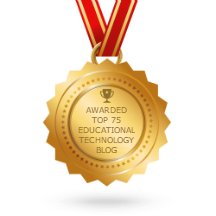As I mentioned in SITE Interactive 2022 and K-12 Online and Blended Learning, I’m attending this conference and wanted to blog some of the relevant sessions. The tenth of which – and final one – is:
Portrait of distance education practices adapted in Moroccan rural schools during the COVID-19 period and the co-development of corrective actions
Async Paper Presentation ID: 61493
-
Judicaël Alladatin
Université Mohammed VI Polytechnique
-
Insaf Al-chikh
Université Mohammed VI Polytechnique
-
Aziz Mimoudi
Université Mohammed VI Polytechnique
-
Ahmed Chebak
Université Mohammed VI Polytechnique
Abstract: Following the dispatch of the coronavirus epidemic, the ministry of education in Morocco replaced all face-to-face courses with distance education as an alternative option to allow for pedagogical continuity. Unfortunately, the sudden shift to distance learning has highlighted the shortcomings, vulnerabilities, and disparities in the education of learners. In addition, this educational opportunity remains out of reach for most children living in rural areas. According to the Haut Commissariat au Plan, Morocco’s national statistics office (HCP; 2020), 73.2 percent of primary school students were enrolled in distance learning at the time of delivery, with 80.8 percent in urban areas against 63.4 percent in rural areas. This article reviews distance education practices used in rural Morocco during the coronavirus period. We adapted semi-structured interviews in five schools, with different stockholders (school principals, teachers, students, parents). These interviews allowed us to first assess the teaching models used in their environment, then in a second step, to identify and plan corrective actions in these schools with a collaborative working group following the codesign approach. The results showed the implementation of several methods for educational continuity such as: the online portal “Tilmidtice”, national TV/radio channels, Microsoft Teams groups, social media, and distribution of books to the students to follow their courses from their houses.
This was the second of the two virtual papers that were presented that focused on K-12 distance, online, and/or blended learning. Unfortunately, beyond the addition of a set of keywords, the authors only uploaded the abstract for their paper.
Keywords: Accessibility; distance learning; hybrid learning; ICT; rural.
However, the authors did upload a PowerPoint file, which I believe is outside of the conference paywall.
https://aace-conf-media.s3.amazonaws.com/conf/interactive/submission/uploads/siteinteractiveonline2022conference/media/Alladatin_et_al_for_SITE_INTERATIVE__61493.pdf
So check it out.

















 12 Unique Blogs Are Written By Professors
12 Unique Blogs Are Written By Professors